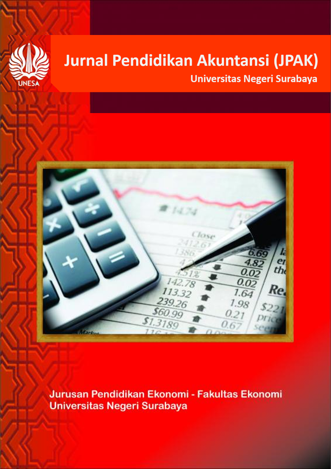Pengaruh Literasi Keuangan, Pendidikan Keuangan di Keluarga, Uang Saku terhadap Perilaku Pengelolaan Keuangan dengan Financial Self-Efficacy sebagai Variabel Intervening
DOI:
https://doi.org/10.26740/jpak.v9n1.p58-70Keywords:
Financial education in the family; financial literacy; financial management behavior; financial self efficacy; pocket moneyAbstract
This study aims to analyze the effect of financial literacy, financial education in the family, and pocket money on financial management behavior through financial self-efficacy, either directly or indirectly. This type of research is quantitative research. The population in this research is active students of the Faculty of Economics and Business, State University of Surabaya. The sampling technique used purposive sampling and obtained 170 students as respondents. The data collection method used a questionnaire. The data analysis technique used instrument test, classical assumption test, multiple linear regression analysis, path analysis with SPSS 24. The results of the study were as follows: (1) financial literacy has no effect on financial management behavior either directly or through financial self-efficacy (2) financial education in the family has a positive effect on financial management behavior both directly and through financial self-efficacy (3) pocket money has an effect on financial management behavior both directly and through financial self-efficacy (4) financial self-efficacy has a significant positive effect on financial management behavior.
Downloads
Downloads
Published
How to Cite
Issue
Section
License
Authors who publish with this journal agree to the following terms:
- Authors retain copyright and grant the journal right of first publication with the work simultaneously licensed under a Creative Commons Attribution License that allows others to share the work with an acknowledgement of the work's authorship and initial publication in this journal.
- Authors are able to enter into separate, additional contractual arrangements for the non-exclusive distribution of the journal's published version of the work (e.g., post it to an institutional repository or publish it in a book), with an acknowledgement of its initial publication in this journal.
- Authors are permitted and encouraged to post their work online (e.g., in institutional repositories or on their website) prior to and during the submission process, as it can lead to productive exchanges, as well as earlier and greater citation of published work (See The Effect of Open Access).

Jurnal Pendidikan Akuntansi (JPAK) is licensed under a Creative Commons Attribution-NonCommercial 4.0 International License.
 Abstract views: 6614
,
Abstract views: 6614
, PDF Downloads: 6202
PDF Downloads: 6202



